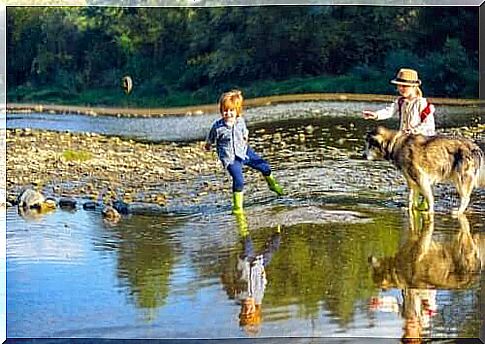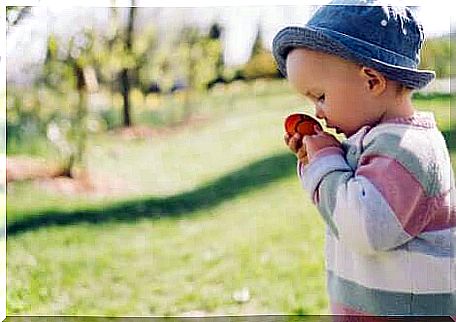Why Is Free Play So Important For Children? – Being Parents

Adults are used to doing things by following rules and instructions. So much so that sometimes we don’t know how to operate otherwise. We should indeed seek in our interior the child which is in us and would make us more benefit from the life and the things which surround us. Why is free play so important in children? This is what we are discussing today in this article.
All parents should know why free play is essential for young children. They can thus consider this aspect of their child’s development and promote it in everyday life.
Children engage and interact with the world around them through play. Therefore, free play in early childhood is all about exploring, experiencing, discovering, and learning.
What is free play?
There are two types of play activities: adult guided play and child led play. Both types are important for the development of young. Indeed, we cannot let a young child play alone 24 hours a day and grow up alone. But neither can we fill his days with activities that take away his free time.

In addition, the time spent in front of the screen should not replace free play. It will only lead to developmental problems and learning difficulties in school. Here are some examples of activities guided by adults:
- Paint with sponges or brushes.
- Handle soil.
- Do an obstacle course.
- Take art classes (theater, drawing, dance, etc.)
- To play board games.
- Cooking with the family.
On the other hand, free play represents any type of game initiated by a child. Outdoor and indoor play can be considered free play, as long as children have the freedom to control their play experience. Some examples of free play are:
- Explore nature.
- Create a castle.
- Invent disguises.
- Play in the kitchen.
- The symbolic games.
Benefits of free play in children
Obviously, free play has advantages for the little ones. We take a look at the three most important benefits for a child’s development below. Notably because it will allow it to evolve with leaps and bounds.
Brain development
Free play is fundamental for the general brain development of a child. As children explore and learn, they form new connections and pathways in their brains.
In addition, children’s brains go twice as fast as those of adults. This therefore represents a significant part of brain development. The stimulation a child receives early will determine the number of neurons that will form.
Creativity
Playing is a creative activity. Children are constantly thinking of new games and activities for fun. In role plays, for example, they invent stories and events and stage them as if they actually happened.
In the case of an artistic activity, the visual creativity of the little ones can develop. When a child plays with a construction game, the design of their invention emphasizes creativity. All forms of play develop creative expression.

Social skills
A child’s first mode of social learning is through interaction with his parents. Then, social interaction is built by playing with siblings, and friends. During free play, children learn many social skills such as:
- Collaborate with others.
- Play to achieve a common goal.
- To negotiate.
- Learn to follow rules.
- Think about others from their point of view: empathy.
- Resolving conflicts fairly and independently: assertiveness.
- Assert yourself.
- Follow the example of others.
- Improve sympathy towards others.
- Demonstrate socially acceptable behavior.
- Promote communication with each other.
Finally, as you can see, it is essential to promote free play in the lives of your children. Guided games are also great, but free play will help them develop more. The challenge is therefore to balance the different playing times.









